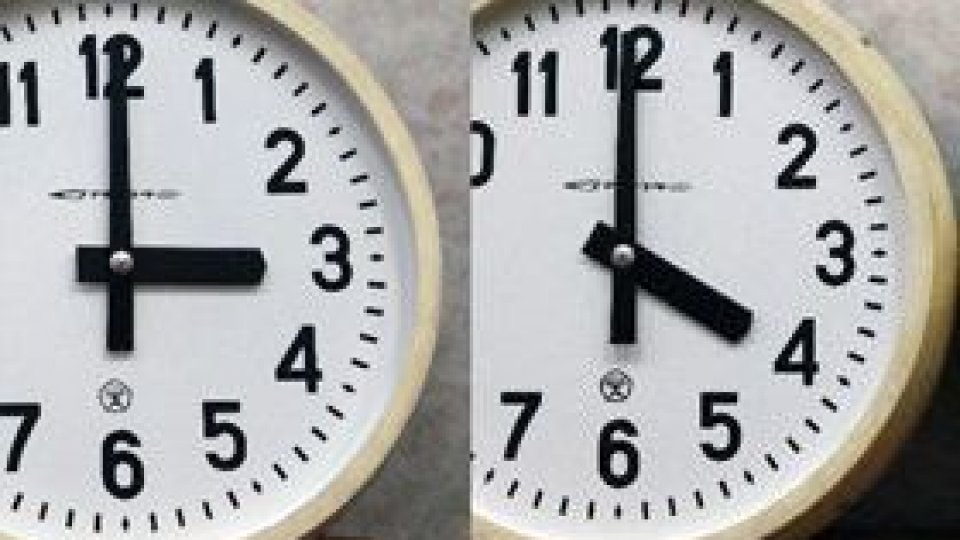Romania goes to summer time
On the night of Saturday to Sunday, clocks will be put forward one hour - so 3:00 becomes 4:00.

30 Martie 2013, 10:50
Romania passes to the official daylight saving time in the night from Saturday to Sunday.
The clocks will be put forward one hour - so 3:00 becomes 4:00. Sunday, March the 31st, will be the shortest day of the year, with only 23 hours.
The switch to daylight saving time will only affect the trains on the road between the hours of 3 and 4.
According to a press release of CFR, 85 passenger trains will have delays, including seven international.
Because the transition to daylight saving time is made also Sunday in all neighboring countries, between the border stations with Hungary, Serbia, Ukraine, Bulgaria and Moldova, people will travel after the existing timetable.
Summer timetable in Romania is related to that practiced in the European Union countries and applies for the period between the last Sunday of March to last Sunday in October.
In Romania, once with the transition to daylight saving time, the difference from Universal Time (GMT) will be three hours.
In the rest of the year, the time difference from Greenwich Mean Time (GMT) is two hours.
Summer time, first introduced in Romania in 1932
The daylight saving time was introduced in Romania for the first time in 1932, informs Agerpres.
Until 1939, it worked each year between the first Sunday of April (in 1932 – May the 22th), 00.00, and the first Sunday in October, at 1.00 (local times).
From 1943, the practice of switching to daylight saving time was suspended.
In 1979, Romania signed the Time Zones Convention, and in 1997, by government ordinance, the summer time was correlated with that practiced in EU countries.
By entering the DST was intended to benefit the most of natural light (the sun) and reducing the use of artificial light.
Currently, the daylight saving time is used by 70 countries around the world, but not all countries have the same periods for DST change. There are many states that have introduced only experimentally DST.
Also, the equatorial and tropical countries do not apply the summer time because the day is equal throughout the year.
Russia said it will renounce, starting the fall of 2011, at the transition to winter time, after 30 years of the establishment of this practice.
Translated by Alexandra-Diana Mircea
MTTLC, Bucharest University














